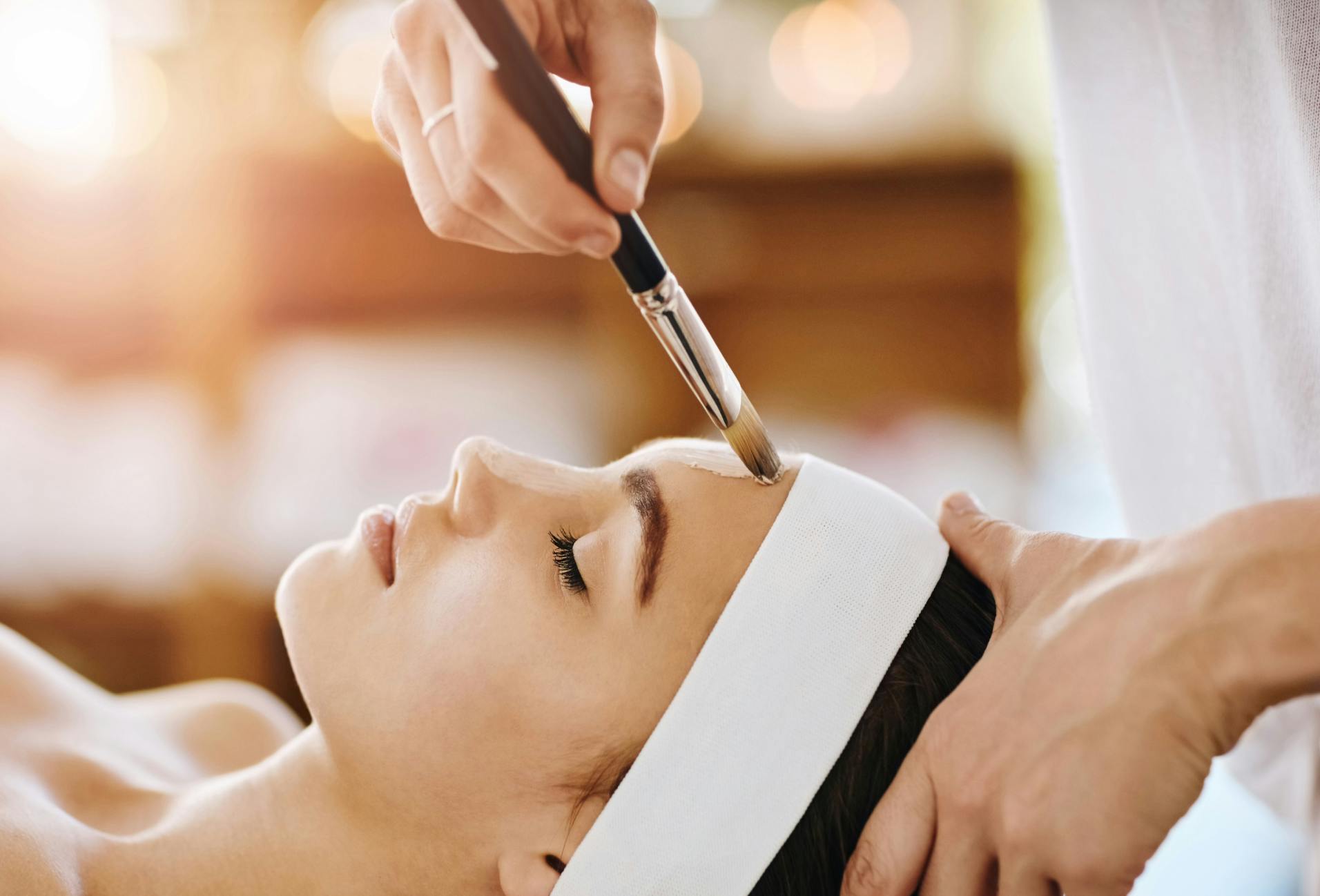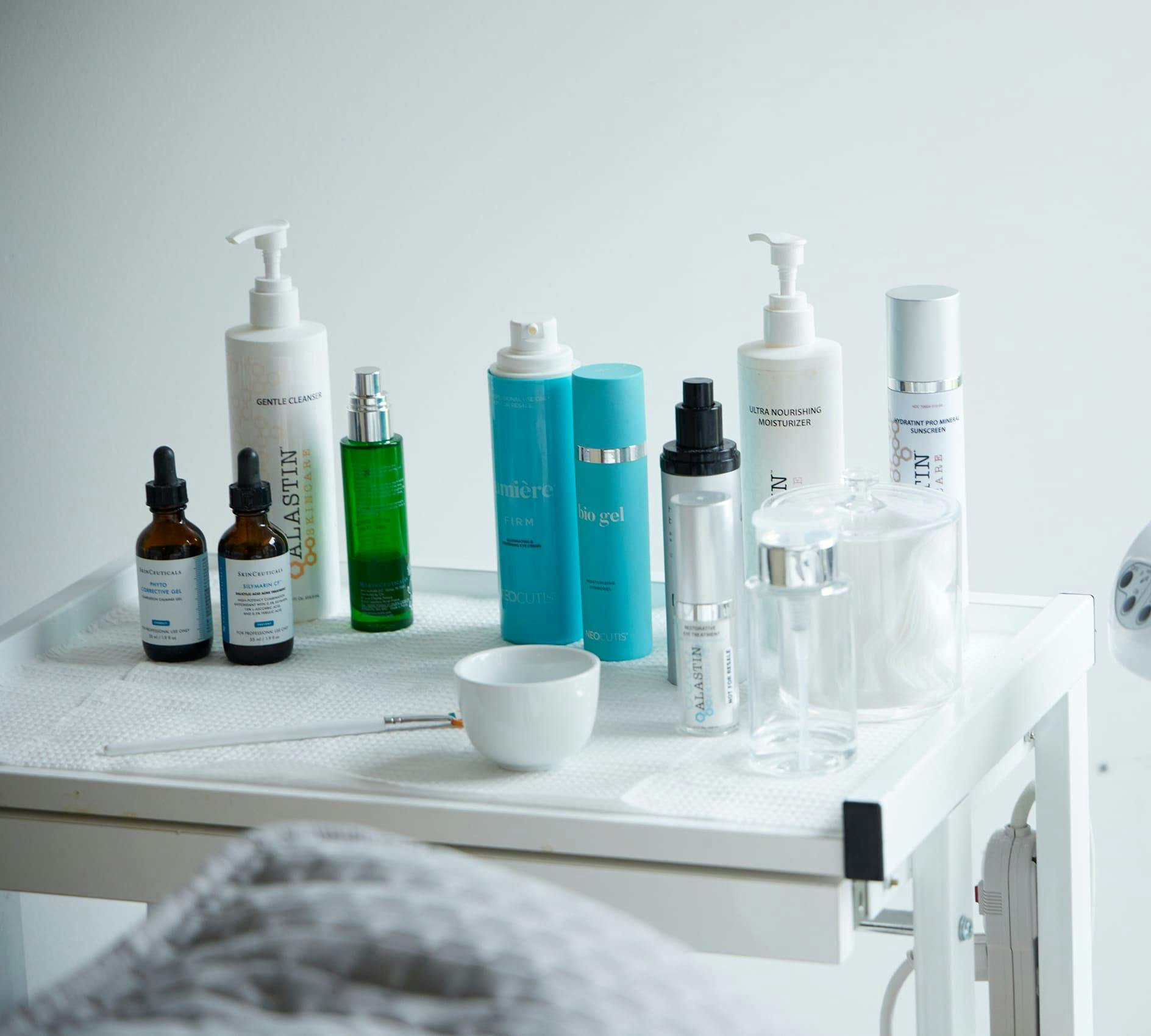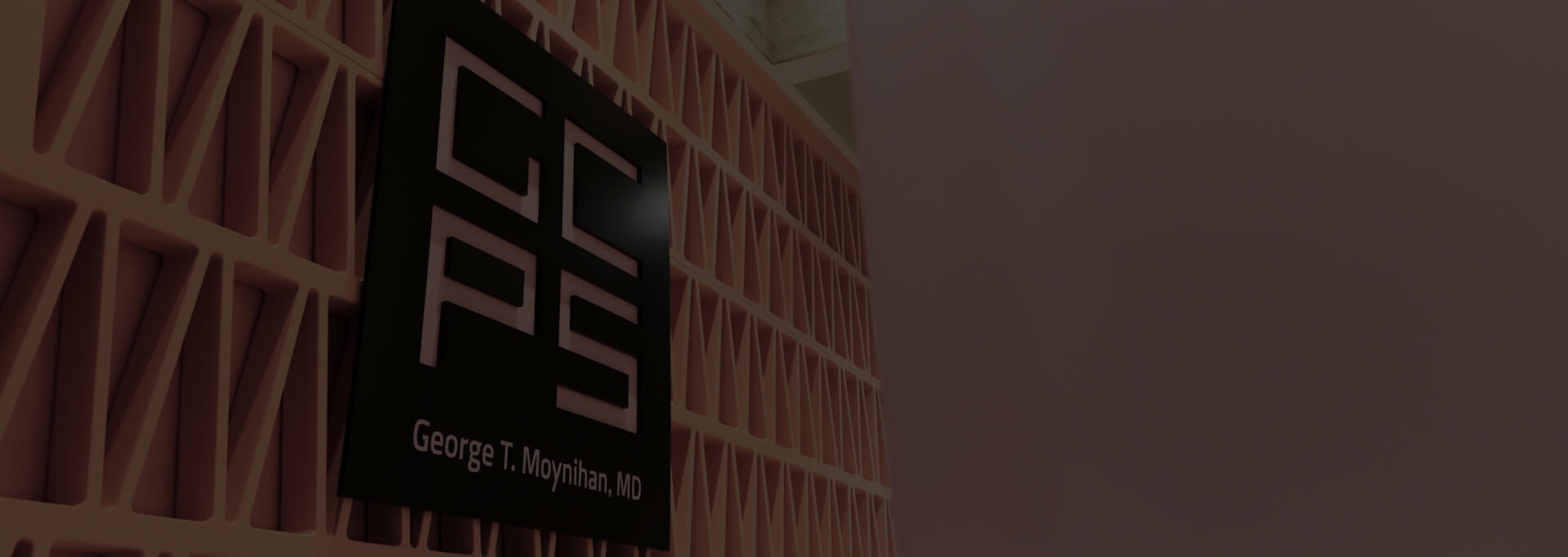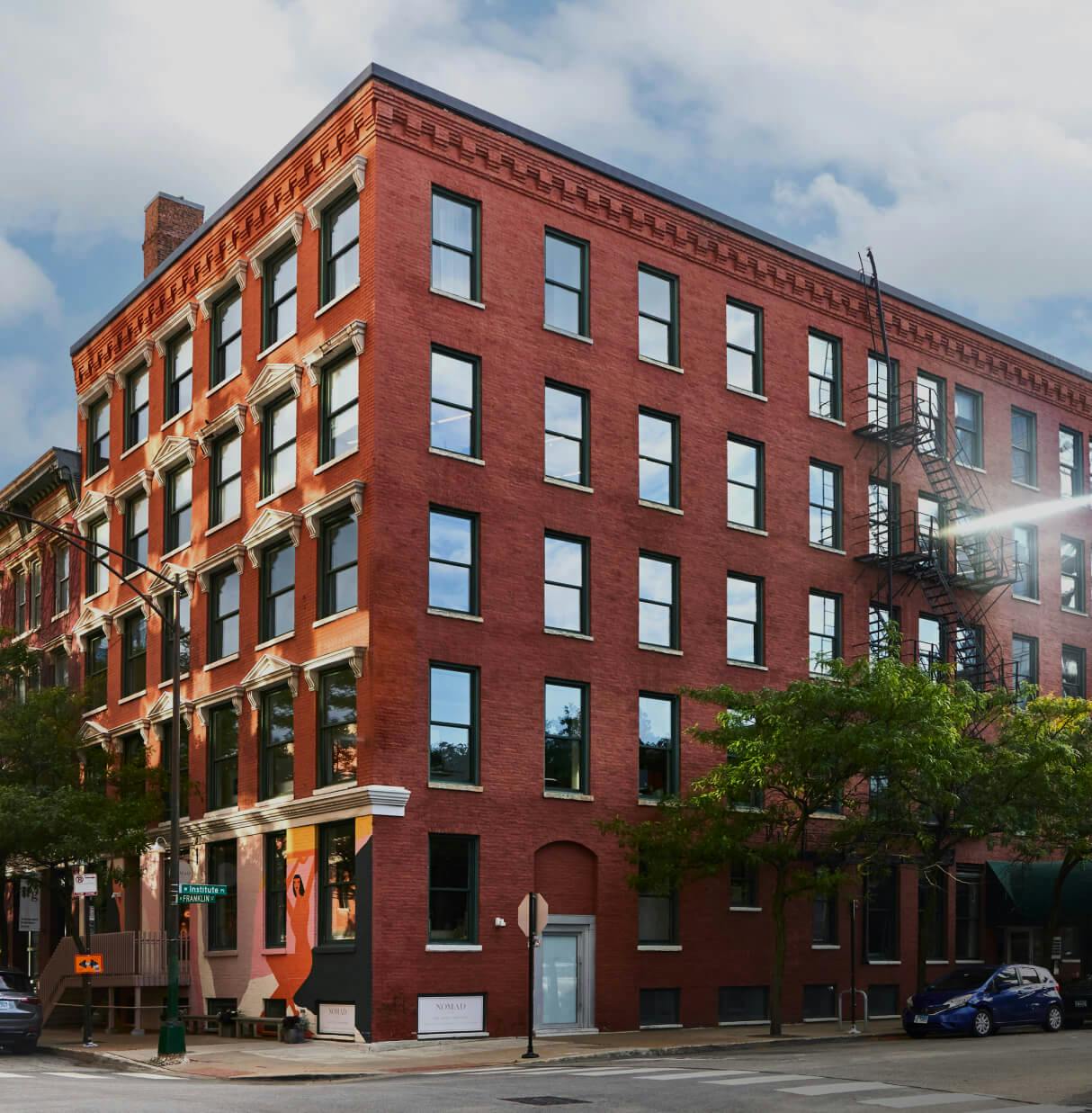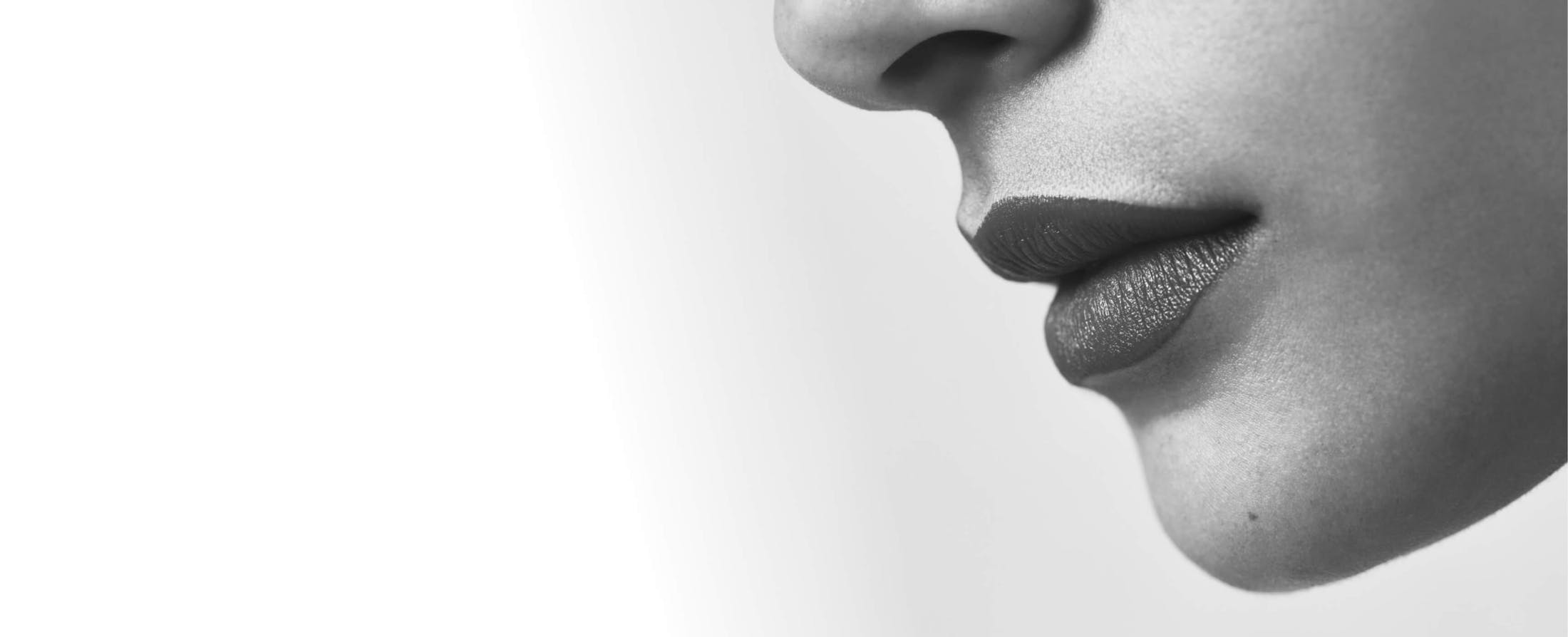There are various types of chemical peel treatments available, each with a unique formula. A VI Peel, one of our most popular, is a combination of trichloroacetic acid, salicylic acid, and phenol. It also contains vitamin C and tretinoin. But what is a chemical peel, and how do you know what’s right for you?
How do chemical peels work?
The treatment involves applying a chemical solution to your face (and decolletage if needed,) to induce skin renewal while stimulating natural collagen production. Collagen is a naturally occurring protein that supports the bones and tendons, skin, muscles, cartilage, and tissues. Collagen is the component that lends the skin its suppleness, creating resilience and structure. Over time, however, the body’s collagen levels decrease as production slows, one of the primary causes of sagging, aging skin.

